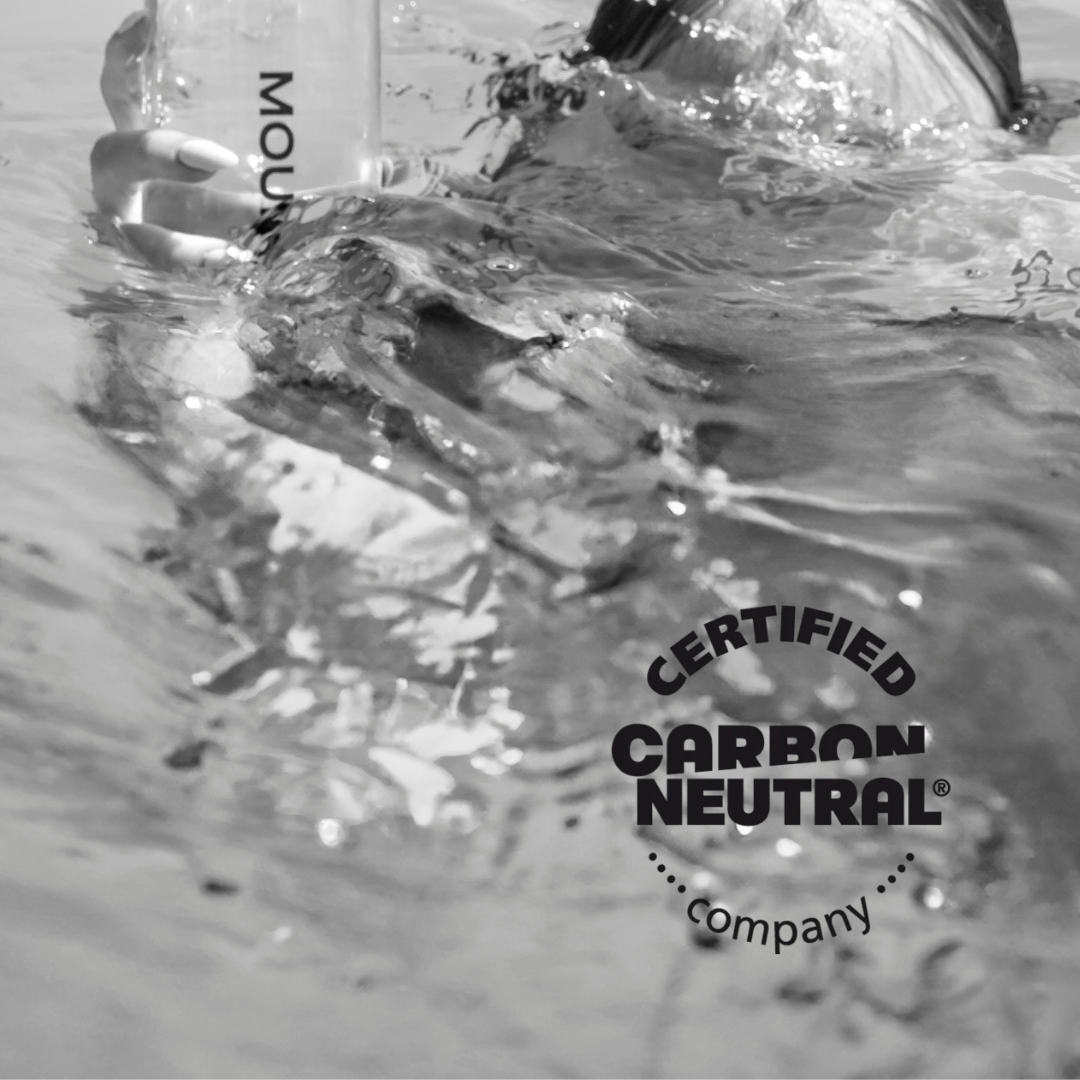Water pollution is a pressing global issue, but when you zoom into places like South Africa, the stakes seem even higher. The quality of your drinking water directly influences your health, and unfortunately, many are unaware of the depth of water pollution's impact. From waterborne diseases to long-term health conditions, the consequences are far-reaching. According to the World Health Organization, a staggering 80% of the world's diseases and 50% of child deaths are tied to poor drinking water quality, underscoring the urgent need for awareness and action.
In South Africa, the challenge is multifaceted, affecting not just physical but also psychological health, particularly in children. The exposure to pollutants, even at low levels, can lead to neurodevelopmental issues and psychiatric disorders, highlighting the critical need for clean water. This article aims to shed light on the myriad ways water pollution affects human health, offering insights into the dire need for improved water quality and the collective effort required to safeguard public health.
Key Takeaways
What is water pollution?
Water pollution occurs when harmful substances—be it chemicals, waste, or contaminants—enter water bodies such as rivers, lakes, and oceans, degrading the quality of the water and rendering it toxic to humans, wildlife, and the environment. In the South African context, this environmental challenge is exacerbated by industrial, agricultural, and household practices that allow pollutants to flow into water systems unchecked.
The primary sources contributing to water pollution in South Africa include agricultural runoff laden with pesticides and fertilisers, untreated or inadequately treated sewage, and industrial waste discharges. These pollutants carry heavy metals, pathogens, and toxic chemicals, posing severe risks to both human health and aquatic ecosystems.
Understanding what water pollution is, underscores the importance of initiatives on how to save water and mitigate water pollution. Simple actions, such as reducing chemical use in agriculture, properly disposing of household waste, and supporting wastewater treatment projects, can significantly impact the fight against water pollution.
Engaging with the question, "How can I help with water pollution?" leads to awareness and action. Whether it's through community clean-up projects or advocating for stricter pollution controls, your involvement plays a crucial role. Knowing why water pollution is bad not only for our environment but also for our health encourages a collective effort towards preserving our water quality.
Water pollution affects every aspect of life in South Africa, from access to clean drinking water to sustaining biodiversity in our rivers and oceans. It's crucial to address this issue head-on by understanding the sources, impacts, and solutions to water pollution, ensuring a safer, healthier future for all South Africans and the ecosystem at large.
What are the causes of water pollution?
Following the discussion on the impact of water pollution on human health, especially in the South African context, it's vital to delve into the root causes of this pressing issue. Understanding these causes can empower individuals and communities to take informed actions against water pollution.
Agricultural
In South Africa, agriculture is a double-edged sword; while it's vital for the economy and food production, it's also a significant source of water pollution. The use of pesticides, herbicides, and fertilixers in farming practices leads to agricultural runoff, one of the primary culprits of water contamination. When rain falls, these chemicals, meant to boost agricultural output, are washed away from the fields into rivers, lakes, and underground water sources. This not only degrades the quality of the water but also harms aquatic ecosystems, making the water unsafe for human consumption and aquatic life.
Sewage and Wastewater
Improper disposal of sewage and wastewater is a critical concern across many parts of South Africa. Urbanisation and population growth have outpaced the development of adequate sewage treatment facilities in some regions, leading to the direct discharge of untreated or partially treated sewage into water bodies. This negligence introduces a plethora of harmful pathogens, chemicals, and pollutants into the water, posing a severe risk to public health. The situation underscores the urgent need for enhanced wastewater treatment infrastructures and sustainable waste management practices to safeguard water quality.
Oil Pollution
Oil pollution, though not as frequent as other forms of water pollution in South Africa, remains a significant concern due to its catastrophic impact on water bodies when it occurs. Incidents involving oil spills from ships, leakage from oil refineries, or illegal dumping of oil waste into the water can be devastating. Oil forms a layer on the water surface, blocking sunlight and oxygen, which are crucial for marine life, leading to severe ecological imbalances. Moreover, the cleanup of oil spills is often a complex and costly process, stressing the importance of stringent regulations and preventive measures to combat oil pollution.
Radioactive Substances
The mining industry, a cornerstone of the South African economy, is also a source of radioactive substance contamination in water bodies. Uranium mining and other mining activities can lead to the leaching of radioactive materials into groundwater and rivers. These substances pose severe health risks to humans, including cancer and kidney failure, when they contaminate drinking water. The situation demands strict monitoring and regulation of mining activities to prevent radioactive contamination of water sources.
Addressing the causes of water pollution in South Africa requires a multi-faceted approach, encompassing agricultural practices, sewage and wastewater management, oil pollution control, and the safe handling of radioactive substances. By understanding these issues, you gain insight into how you can help with water pollution, reinforcing why water pollution is bad and highlighting the importance of collective efforts to save water and protect public health and the environment.
Categories of water pollution
Understanding the categories of water pollution is crucial for determining appropriate intervention strategies to mitigate its adverse effects on human health. This section explores the sources of water pollution and the types of water bodies affected, within the South African context.
Where is the Pollution Coming From?
Point Source Pollution
In South Africa, point source pollution is a significant concern, often originating from identifiable locations such as industrial facilities, wastewater treatment plants, and mining operations. These sources discharge pollutants directly into water bodies, leading to severe water quality degradation. Effluents from factories and mines can contain hazardous chemicals, heavy metals, and other toxic substances that pose dire health risks to communities reliant on these water sources.
Nonpoint Source
Nonpoint source pollution, unlike point source, does not come from a single, identifiable source. Instead, it's dispersed, arising from agricultural runoff, urban stormwater, and rural areas. Pesticides, herbicides, and fertilisers from agricultural fields wash into rivers and dams, significantly impacting water quality. Urban runoff, containing oil, grease, and other pollutants from roads and cityscapes, further exacerbates water pollution challenges in South Africa.
Transboundary
Transboundary pollution transcends national borders, affecting neighbouring countries sharing water bodies with South Africa. River systems, such as the Limpopo and the Orange River, which cross borders, can carry pollutants from one country to another, highlighting the need for regional cooperation in water management and pollution control.
What Type of Water is Being Impacted?
Groundwater Pollution
Groundwater, an essential source of drinking water for many South Africans, faces contamination from seepage of pollutants through the soil. This includes leakage from landfill sites, septic tank overflow, and contamination from industrial and agricultural activities. The invisible nature of groundwater pollution makes it a silent threat, often going unnoticed until adverse health effects surface.
Surface Water Pollution
Surface water bodies, including rivers, lakes, and reservoirs, are visibly impacted by water pollution. In South Africa, surface water pollution is highly visible in places like the Vaal River, where industrial waste, sewage spillage, and runoff lead to waterborne diseases. Such pollution not only affects human health but also disrupts local ecosystems and biodiversity.
Ocean Water Pollution
South Africa's long coastline is not immune to water pollution. Ocean water pollution arises from land-based sources, including littering on beaches, oil spills from ships, and runoff from rivers carrying pollutants into the sea. This form of pollution poses a risk to marine life and impacts tourism, fisheries, and water recreation activities crucial for the local economy.
In addressing "what is water pollution" and its far-reaching implications, understanding these categories helps in formulating "how to save water" strategies and interventions. "How can I help with water pollution" and "why is water pollution bad" are questions that prompt both individual and collective actions towards preserving South Africa’s water resources.
What are the effects of water pollution?
On human health
Water pollution poses significant risks to your health, particularly in areas like South Africa where various sources contribute to the pollution of waterways. The contact with or consumption of contaminated water can lead to a range of health issues. For instance, waterborne diseases are prevalent in regions where water is contaminated with bacteria and viruses due to inadequate sewage treatment. Diseases such as cholera, hepatitis, and diarrhoeal diseases can emerge from drinking or coming into contact with polluted water.
Furthermore, heavy metals like lead, arsenic, and mercury, often found in industrial waste, can accumulate in water sources. When ingested, these contaminants can cause severe health problems, including neurological damage, kidney failure, and impaired development in children. Agricultural runoff containing pesticides and chemicals also contributes to water pollution, leading to hormonal imbalances and reproductive issues in humans upon exposure.
In South Africa, the challenge is amplified by mining activities that introduce toxic substances into water bodies. These pollutants not only affect drinking water quality but can also accumulate in the food chain, presenting long-term health risks to communities relying on fish and aquatic plants as food sources.
On the environment
Water pollution has a devastating impact on the environment, affecting not only aquatic life but also terrestrial ecosystems. In South Africa, ecologically vital water systems like the Vaal River and various wetlands are under threat due to pollutants from industrial discharge, mining, agriculture, and urban runoff. Such contamination can lead to a decrease in biodiversity, disrupting ecosystems and leading to the loss of species that are crucial for ecological balance.
For example, pollutants can cause eutrophication, a process where water bodies become overly enriched with minerals and nutrients, leading to excessive growth of algae. This depletes oxygen in the water, causing dead zones where aquatic life cannot survive. The decline in aquatic species affects the entire food web, including birds, mammals, and humans, who rely on these water bodies for food and livelihood.
Moreover, water pollution affects the natural beauty and recreational value of South Africa's rivers, lakes, and coastlines, impacting tourism and local economies. Preservation of these water resources is crucial not only for environmental sustainability but also for maintaining the quality of life for future generations.
In combating water pollution, understanding the causes and effects is the first step toward effective solutions. Initiatives aimed at improving sewage treatment facilities, controlling industrial discharge, and promoting sustainable agricultural practices are essential. Your contribution can also make a difference; learning about water pollution, conserving water, and adopting eco-friendly habits contribute to the battle against water pollution. Remember, every action counts in protecting South Africa's precious water resources.
What can you do to prevent water pollution?
Understanding the severe impact of water pollution on human health and the environment is the first step towards making a change. It's clear that actions at both the community and individual levels are essential to combat this issue. By supporting and advocating for improved sewage treatment and stricter industrial discharge regulations, you can contribute to a larger solution. On a personal level, adopting water conservation techniques and eco-friendly habits can make a significant difference. Reducing the use of pesticides in your garden, properly disposing of household chemicals, and participating in local clean-up efforts are practical steps you can take today. Remember, every action counts in preserving South Africa's precious water resources for ourselves and future generations. Let's work together to ensure a healthier planet.
Frequently Asked Questions
What are 10 diseases caused by polluted water?
Polluted water can lead to various diseases including Salmonellosis, Hepatitis A, Cryptosporidiosis, Typhoid, Cholera, Diarrhea, Dysentery, and Amoebiasis (Traveler's Diarrhea). These ailments result from consuming water contaminated with harmful pathogens or chemicals.
What is the human impact on water pollution?
Human activities significantly contribute to water pollution through the disposal of industrial waste, sewage, agricultural runoff, and emissions. These pollutants not only degrade water quality but also harm aquatic life and ecosystems, making it a pressing environmental issue.
What are 5 effects of water pollution?
The key effects of water pollution include the destruction of biodiversity, contamination of the food chain, scarcity of potable water, spread of diseases, and increased infant mortality. These impacts threaten not only environmental health but also human well-being.
How does ocean pollution cause disease?
Ocean pollution leads to the increase of harmful algal blooms, such as red tides, which produce toxins. These toxins can accumulate in seafood, potentially causing serious health conditions like dementia, amnesia, paralysis, and even death in humans upon consumption.
How many humans are affected by water pollution?
According to the World Health Organization (WHO), approximately 2 billion people around the globe are affected by water pollution. They consume water contaminated with fecal matter or harmful chemicals, putting them at risk of various diseases.



